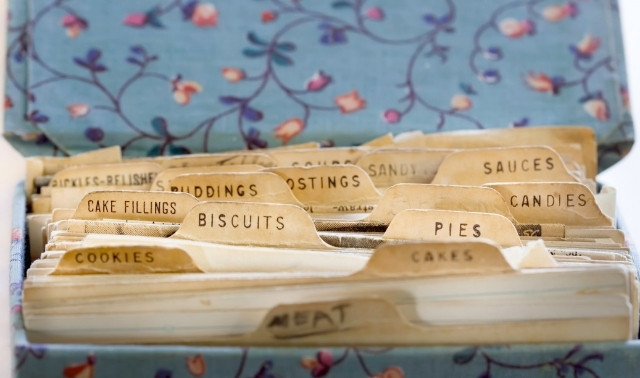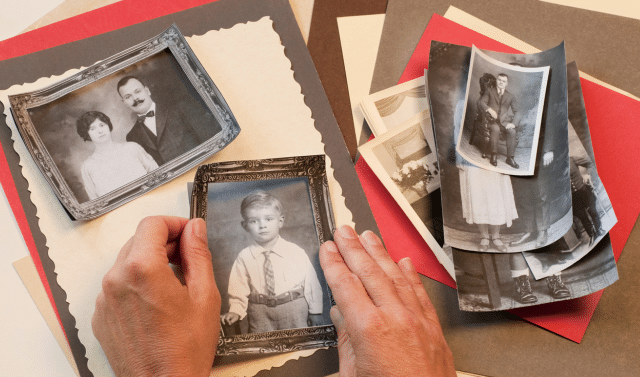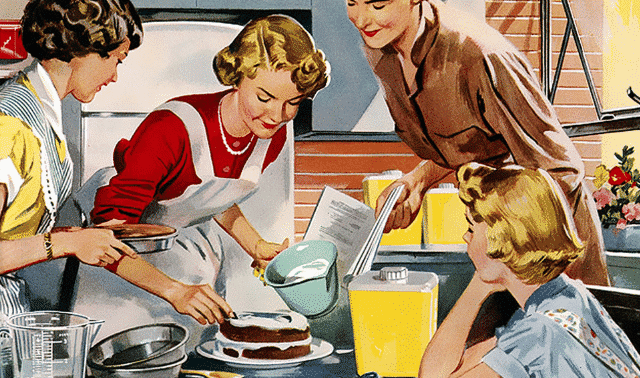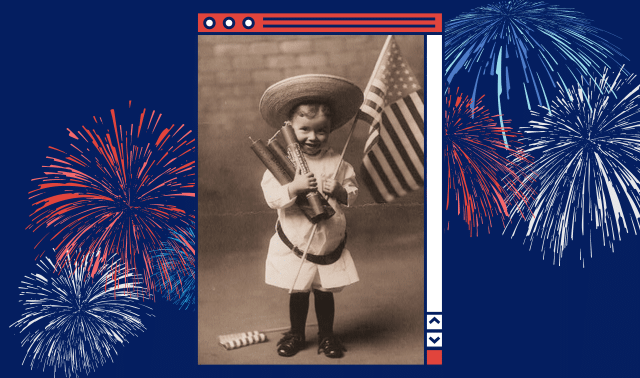Sign up for the Family Tree Newsletter! Plus, you’ll receive our 10 Essential Genealogy Research Forms PDF as a special thank you.
Get Your Free Genealogy Forms
"*" indicates required fields
1. Observe family traditions—or create new ones
There’s nothing like reliving a time-honored tradition to revive family closeness. What would that look like in your family? Stringing up lights, lighting a menorah or candle or caroling? Baking a favorite dessert or decorating cookies? Heading downtown to see the lights or shop?
Sometimes it’s time to change up or—at least temporarily—retire a tradition that just doesn’t work with your family’s current circumstances, ages or interests. With a little creativity, you may be able to adapt one. For example, instead of a live theater performance (which might be out of your budget or not-your-favorite-option with toddlers), opt for a movie version of a holiday classic.
2. Eat your family history
Many families have food traditions at the holidays, even if it’s simply a turkey on Christmas or shrimp cocktail on New Year’s Eve. A lot of families have special recipes, such as an ethnic dish or a cherished baked good.
Preserve food traditions by passing them on! Make them together. Eat them together. Share the recipes, stories and memories that endear them to your family. Check out this great list of special holiday recipes from Family Tree Magazine editors.
If you don’t have any food traditions, adopt some. Do a little online research to learn about traditional recipes from an ancestral homeland; this article describes some for Eastern Europe, Scandinavia, Italy, Mexico, France, Israel, the Middle East and Africa.
3. Give a heritage gift as unique as your family
Instead of yet another sweater, candle, scarf, tool or gift card, give your loved one a gift unique to your shared past. A family history photo book is a great idea—just give yourself sufficient time to make and order it.
If you’re a creative gift-giver, think about a family story or tradition you love (maybe one that’s come to mind as you’re reading this article). Then consider gifts that honor this tradition. For example, a few years ago, my brother John made his nieces and nephews each a set of clothespin ornaments, in honor of similar homemade ornaments we had as children. My boys enjoy arranging them on our tree each year, just as my brothers did.

My mother made soldier ornaments when I was young, similar to the one shown on the left. In honor of that memory, my brother John recently created his own series of soldier ornaments for my sons. (I grew up with five brothers who saw great humor in having fully-armed troops on our Christmas tree. Sometimes they even staged battle scenes on the tree, surrounded by glittering little angels and Santas.)
4. Honor absent loved ones
My mother’s mother passed away several years ago. A favorite memory was that she had a pet peacock named Walter. Whenever we visited, we gathered his discarded feathers and watched for him to fan his tail. Last year, I gave my mom a beautiful peacock ornament in honor of her mother, who was born on Christmas Eve.

Finding a way to commemorate those who are absent celebrates heritage and can also help acknowledge a family member’s grief or loneliness. Create a tabletop display for a loved one serving in the military or for distant grandchildren. Memorialize those who are gone with memorial ornaments, such as the example shown above (or get inspired to make your own by searching Pinterest for memorial ornaments). During family get-togethers, consider observing a moment of silence or lighting a candle in honor of someone who is gone.
5. Make a donation in honor of your heritage
I know a fellow member of the Ohio Genealogical Society who makes a monthly donation “in honor of ancestors yet to be found.” What optimism! If you’re a member of a local, state, ethnic or national genealogical or historical society, consider giving a financial contribution. Or donate the richness of your research efforts or your artifacts by donating them to an archive (here’s how to do that).
Take this idea a step further by supporting causes you’ve learned to appreciate because of your family history: education, voting rights, equal treatment under law. Volunteer at a naturalization ceremony (research opportunities online or contact your local League of Women Voters. Do something to help recent immigrants or refugees. Give to a veteran’s organization or one that helps families of deployed personnel. You might even make that donation in honor of your ancestors, so that their names and legacies “pay it forward” to descendants yet to be born.
Related Reads
Last updated: November 2023











